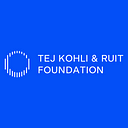The Disenfranchisement of Women with Cataracts
March 2023 marks International Women’s History Month. Since March 2021, the Tej Kohli & Ruit Foundation has been working hard to ensure that women living in marginalised communities are able to access vital resources such as healthcare.
Across the world many women suffer needlessly due to a majority of reasons. The main causes of unequal access to health services, specifically eye health services between men and women have been attributed to things like women being treated as second-class citizens. In most instances, we have seen that households are much more likely to invest in the cure of a male’s cataract blindness instead of a woman’s.
Another reason is low literacy levels due to a lack of education. This leads to the assumption that women are unaware of the information regarding cataract blindness, or any other disease, causing them, in some instances, to believe that they have been cursed with blindness or that they simply have bad luck.
Women are also highly discouraged from travelling alone due to physical dangers along the roads. This means they are unable to travel to hospitals or eye clinics without family members who, most of the time, are unwilling to risk a day’s wage to accompany them.
Exclusion
Blind individuals are often solely dependent upon family members for basic needs and everyday tasks. Very often, people living with needless blindness, particularly women, aren’t considered an equal and they experience extreme social exclusion by being ostracised by friends and family.
Anita Yadav
One patient, Anita Yadav, was completely shunned by her husband and community. The 35 year old was living a peaceful life with her husband and two sons in Western Nepal. Anita had recently received the news that she was pregnant, however, around three months into her pregnancy her vision became blurry.
Anita and her family became concerned. As she reached her 7th month of pregnancy, Anita was completely blind. She needed support from her family to complete daily tasks. This is when her husband decided that she must leave their home and move to her parents. Anita’s husband informed her that she was to return, only after her blindness had been cured.
Back with her parents, Anita gave birth to a healthy baby girl. This was when her parents turned their attention to curing her blindness. They visited a hospital where they were told the cost of the surgery. Unable to pay, they heard about an upcoming Tej Kohli & Ruit Foundation eye screening camp that was taking place near their village.
A Cure
In August of 2021, Anita was diagnosed with bilateral cataracts and went on to have her vision restored for free by the Tej Kohli & Ruit Foundation.
Anita is just one example of a woman who has been pushed out of their home and community due to suffering with needless blindness. When asked about what she will do next she spoke about returning home to her husband and sons with her daughter.
